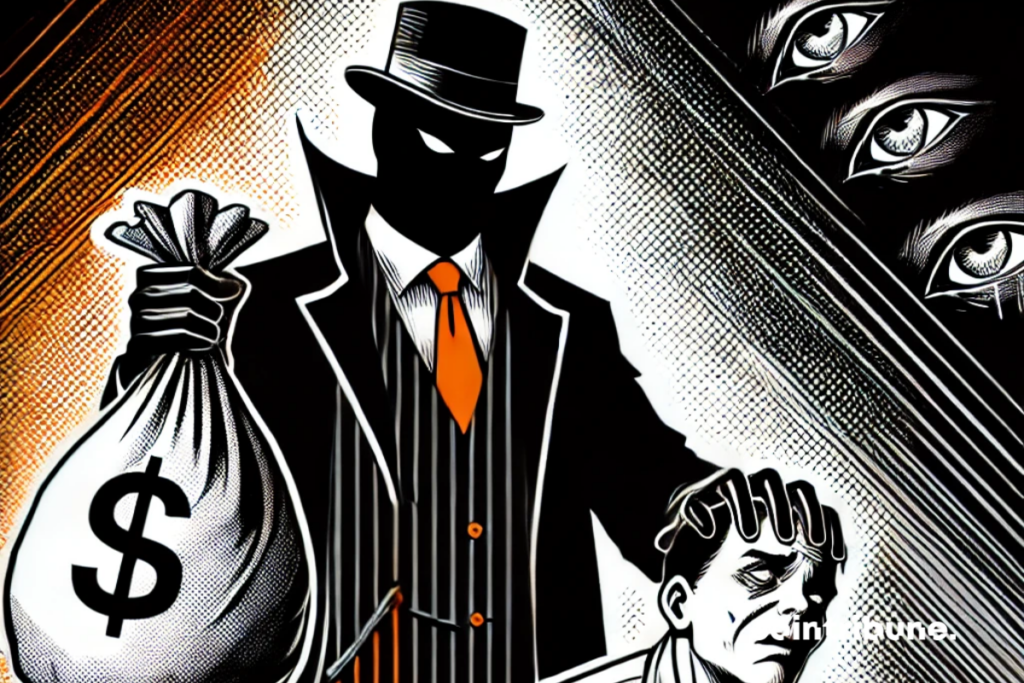China is Fully Plundering Africa
Since 2013, China has been pursuing a policy of plundering the African continent through the usurious and almost mafia-like system of the Silk Roads.

The titanic Silk Roads project
The Silk Roads project was one of Xi Jinping’s first initiatives, unveiled in 2013. The idea, as stated, was that the Chinese government would invest in infrastructure projects around the world to stimulate the economies of these countries while increasing China’s business opportunities, a huge win-win.
There was also the tacit idea that these lavish expenditures would allow China to gain friends and geopolitical allies around the world, while enhancing access to essential natural resources and perhaps even military sites.
China has already spent $1 trillion on this titanic project.
Modus operandi
The word “invest” implies that China was paying for infrastructure in those countries that it would then partly own. This type of investment would align the incentives of China and the recipient countries, a true win-win, in theory.
Except that’s generally not how Belt and Road actually worked. Instead, China typically lends money to countries to build infrastructure projects. The Chinese government then helps plan these projects.
Next, the borrowing country uses the money it borrowed from China to build the infrastructure, often paying Chinese contractors to do the actual work.
A good deal
From China’s perspective, this is a very good deal, at least in the short term.
Your contractors record substantial revenues, and your government gets its money back when the recipient country repays the loan.
The loan is generally secured by the built infrastructure, so if the recipient country doesn’t repay you, you at least own part of the infrastructure in a foreign country, and your contractors have received some money.
From the recipient country’s point of view, it’s much riskier.
But only for China
If the infrastructure project doesn’t generate enough money to repay the loans, the government will have to repay China with taxpayer money, which will be painful for its citizens.
If it doesn’t succeed, it will have to give up the infrastructure and suffer a painful default that will hurt its international borrowing capacity and trigger a deep recession, or even a crisis.
The Silk Road countries thus bet that China would design very good infrastructure projects for them.
Overall, China has not.
Many projects were poorly planned and executed.
In Myanmar, Chinese planners seemed to think it would be enough to drive peasants off their lands to build pipelines, as is common practice in China; instead, they triggered massive protests.
In Pakistan, angry locals simply attacked Chinese workers.
Meanwhile, in Sri Lanka, China built an entire port in Hambantota, which was supposed to boost Sri Lankan trade.
Hambantota became a gigantic white elephant, unable to generate enough cash to repay the loans Sri Lanka had taken from China to build it. Moreover, Sri Lanka is not very good at generating tax revenue.
The country thus defaulted, and China took control of the port.
Made in China constructions
Poor construction quality of some projects cripples key infrastructure and imposes even higher costs on countries.
Uganda’s electricity company has reported identifying more than 500 construction defects in a 183-megawatt hydroelectric plant built by China on the Nile, which has suffered frequent outages.
In Angola, in a large social housing project outside the capital Luanda, many residents complain about cracked walls, moldy ceilings, and poor construction.
Even Indonesia’s high-speed rail line from Jakarta, sometimes touted as the most successful project, has experienced huge cost overruns and has taken years behind schedule.
At some point, the Chinese government realized that projects were failing and that it would have to choose between losing a lot of money and upsetting a lot of other countries.
Colonialism by debt
The borrowing countries are still burdened with considerable debt.
For instance, in Sri Lanka, in the grip of a severe economic crisis, China refuses to cooperate with other international lenders to set up a rescue plan.
And let’s not forget that Sri Lanka has already ceded the port of Hambantota to China.
Debt repayment is taking up an increasing share of tax revenues needed to keep schools open, provide electricity, and pay for food and fuel in many African countries.
Moreover, it was recently discovered that borrowers were forced to place money in hidden escrow accounts.
Plundering by China
Suppose a wealthy man approaches you and tells you that he made his fortune in the food truck business and that you can do the same.
He offers to lend you money to buy a food truck and start making money. Since he is wealthy and successful, you believe him and agree to the deal.
And he owns the company that sells you the food truck, and he also owns the company that sells you the ingredients, so you simply take the money he lends you and give it to his companies.
Then it turns out that the food truck business isn’t as thriving as he led you to believe. Your business goes bankrupt.
But guess what: you still owe the rich man money!
First, he takes back the truck he sold you, since it was the loan’s collateral. But you still owe him money, and he demands payment!
In short, this is called a scam. Whether it’s a government, like the Chinese Communist Party, or a somewhat dodgy investor.
China, the primary enemy of Africa?
Deals like these made in Africa or Asia seem to be a victory for China at the expense of these same countries.
China paid well-connected Chinese contractors, obtained infrastructure in highly strategic regions, and could still force African countries to cough up the rest of the money they owe.
Money, which will have to be extorted from struggling African peasants in the form of increased taxes and printing more money.
But in the long run, it is almost certain that this will harm China’s image in the world. At the time when money was flowing, Southern countries saw China in a very positive light.
Now that the Silk Road project has failed and the money tap has been turned off, it is clear that the joy sparked by China’s apparent largesse will be replaced by resentment and distrust.
Acting like a mafia loan shark is generally not a way to make friends and influence people.
Chinese leaders pride themselves on being leaders of the South, but they exploit developing countries as if they were their own piggy bank. Throughout the Silk Road saga, the Chinese government has treated African countries like Chinese provinces. Is it time for Africa, after the Western decolonization of the 20th century, to free itself from the Chinese yoke? Yes.
Maximize your Cointribune experience with our "Read to Earn" program! For every article you read, earn points and access exclusive rewards. Sign up now and start earning benefits.

Chaque jour, j’essaie d’enrichir mes connaissances sur cette révolution qui permettra à l’humanité d’avancer dans sa conquête de liberté.
The views, thoughts, and opinions expressed in this article belong solely to the author, and should not be taken as investment advice. Do your own research before taking any investment decisions.